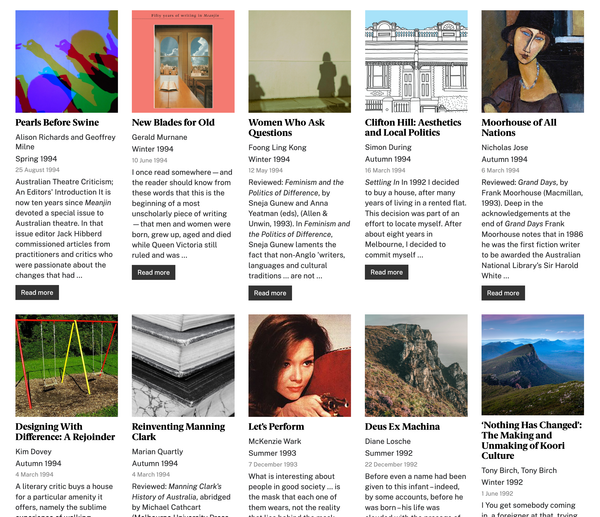Two new reviews and a lot of nail-biting
'Your vote, your choice' – thus spake Julia Roberts.
Happy All Saints Day, folks. We’re done with the candy-reaping, and there’s just one Halloween party left for us to spook out this year. Still, the mood here is one of barely restrained dread. Like many other people, I’ve been distracted by the various spectacles of degraded democracy. It’s still not certain what the outcome of the recent provincial election is here in British Columbia, where the best case scenario involves the centre-left party just holding onto power. Recounts are pending in the east of the province. Over the border in Washington State ballot boxes are being bombed. An anti-abortion government has been elected in Queensland and the ALP is blaming the Greens.
Conservatives in the US are losing their minds about this Democrat ad voiced by Julia Roberts encouraging women to vote as they please: ‘In the one place in America where women still have the right to choose, you can vote any way you want, and no one will ever know.’ Apparently it’s an incitement to extramarital affairs and an insult to patriarchal authority, not a devastating projection of the lived experience of heterosexual marriage for American women. You could build a whole syllabus on democracy, gender, marriage, nationalism, and liberalism around this ad. There’s more to democratic process than voting (and bombing), but I can’t yet tear myself away from the spectacle.
Anyhoo, I have two new pieces out in the world.
I reviewed Lech Blaine’s Australian Gospel for Guardian Australia. That piece is live here. It is a wild ride, this book, and I loved it. The story Blaine has to wrestle is absolutely bonkers, which can be a bit of a mixed blessing for a writer, especially given the story concerns his own family. There’s a version of this book that is dripping with moral sentiment, and another that is laced with rage, and another again that is just way beyond the control of its author. The one that Blaine has written is hilarious, terrifying, extremely sad, and really quite progressive. Not to get all Goodreads about it, but I did laugh out loud, and also shed real salty tears as I read this book. There’s a comment on the Guardian suggesting a connection to Trent Dalton’s Boy Swallows Universe, which made me laugh, because the Dalton-verse was on my mind as I read Australian Gospel. How could it not be? They’re both books set in Queensland in the eighties and early nineties, full of larrikin energy, written by Queensland authors with good ears for vernacular phrasing. They’re two larger than life family stories which, among their other narrative interests, track the resilience and social mobility of neglected young people. But whereas Dalton is all about bootstrappin’ characters with grit, I found the emphasis in Blaine’s book on social bonds tremendously moving and quite surprising. He and his foster siblings thrive not because they’re laser-focused on success but because of their families, communities, unions, sports clubs and so on. In their politics and their orientation towards community – and government services – they’re utterly different books.
I also wrote about No Judgement by Lauren Oyler and All Things Are Too Small by Becca Rothfeld for the SRB. That piece, titled Enemies of Goodness, is much longer, because in it I’m trying to think through some aspects of the epoch of the viral essay, especially as it concerns criticism. My starting point for this piece was to ask what happens when critics who made their names online, as Oyler and Rothfeld both did, get book deals. What kind of a platform for criticism is a book compared to a digital literary journal? How do we read them differently. If the viral essay epoch was pretty much over when I began to write the piece, it now seems completely done. The party is over at X, or rather, it’s hard to imagine careers like Oyler’s and Rothfeld’s being built there.
I mention in passing Anastasia Berg and Rachel Wiseman’s book What Are Children For? in the piece, in part because it fits the template of books that gained momentum via the success of online essays. This week Moira Donegan wrote a fantastic review of this book for Bookforum (read it!! here!!) to which the authors and some of their cohort took great umbrage. If you’re still on X you can probably trawl through the wreckage. A few years ago, this would have been a firestorm – but this week, it was just a spot fire.
Thanks for reading Infra Dig! Subscribe for free to receive new posts and support my work.


